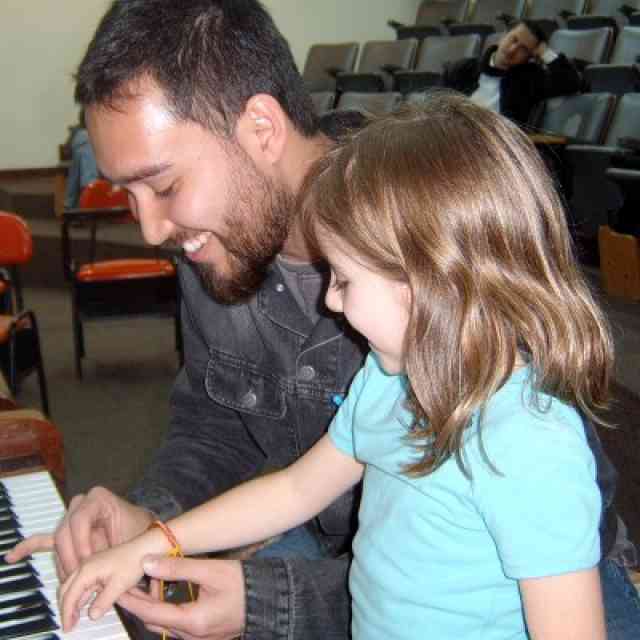
Continuity is a crucial part of learning an instrument, and the link that provides continuity between lessons and practice is your precious notes! Having been a Suzuki parent, I know that in a busy day sometimes you sink into the chair at the lesson and think, “Ah, 30 minutes of down time.” Then you find yourself daydreaming, and before you know it the lesson is over. You glance down at your notebook, and see “Review Allegro” … hmmm, not much to work with. You hear your teacher compliment your child on the lesson, but you are not exactly sure what went on.
At this point you may ask your teacher, “What shall we practice this week?” This will probably get a somewhat annoyed response as the teacher thinks, “OK, do I have to re-run the entire lesson at fast forward?” although she’s glad you at least asked. Or you don’t ask and figure you’ll just get through practice somehow.
Helpful Hints
While you may need some clarification at the end of the lesson, the teacher expects you to pick out major points for practice during the lesson. Here are some tips:
-
Look for a theme, especially with very young children. There is what Suzuki teachers call the “one point lesson.” If you hear the same aspect mentioned again and again, circle it at the top of your notes (i.e., thumb position, clear high notes, where is your foot, D’s correct).
-
In review songs, what is the teacher’s focus? Sometimes it is just a fun warm-up, but more often there is a specific goal. Children do not like mind-numbing repetition. Find the teaching point in the review (i.e., beautiful E’s, breathing, fingering D to C, air use on high notes, etc.).
-
Write down how to do things. “Last two measures of Minuet I” is not enough. How did the teacher break it up? Did you follow the process so it can be duplicated at home? (i.e., do this small group 5 times with no slurs, then add slurs, then speed up, through the A, be careful of the C#.)
-
In scales and exercises, try to notice how they are worked on (i.e., fruit salad, slur patterns, speed, position or tone aspects). Just writing “Do F Major scale” is usually not enough.
-
If you can’t follow where we are in the music, make a copy of the piece as your own study copy. Whether you read music or not, you’ll find this makes a huge difference.
-
Listen for cues. Your teacher is constantly aware of your presence—and how mentally present you are. Whenever you hear the word “practice,” heads up! Also listen for colorful language: sail your tone out the skylight, staccatos like hammering little nails, BIG beach ball bouncing. Try to use these words again in the practice. Listen for location phrases: “in the last measure of that line, where it starts on B-flat and goes up, where it says crescendo.” These location tips are often for your benefit, as the teacher and student already know where they are working.
-
Observe and adore your child. Relish the chance to do this. Watch body language, facial expressions, how your child learns, what feelings flicker past. It’s very interesting, and you may find something to talk about later, or you may just cherish the memory 10 years from now. However, keep your reactions, especially negative ones, to yourself during the lesson.
-
Need time to space out? OK. There are times you can, like when the teacher goes off on a long technical workout and you already have the gist of what is being done. But listen for cue words to bring you back to attention.
-
Help your teacher: Put all materials recently used on the stand at the beginning of the lesson. Ask for clarification of practice tasks at end of lesson. Ask about review if your teacher did not mention it. Try not to do noisy things like rattle newspapers, tear checks, crinkle cellophane, etc. It’s easy to forget that listening captures all sounds—and we are listening. Bring up general practice or schedule problems at the beginning of the lesson. Starting these important and timely conversations at the end of the lesson can wreak havoc with the teacher’s attempt to stay on time. Keep the teacher informed about events that may affect the child in a significant way (moving, illness, divorce, school troubles, etc.). These things have an impact which the teacher observes, and wants to respond to appropriately. Lengthy explanations are not needed, but a word will enable the teacher to respond in a sensitive, effective way.
How can your teacher help you? We want your feedback…let us know how to make your job easier!







